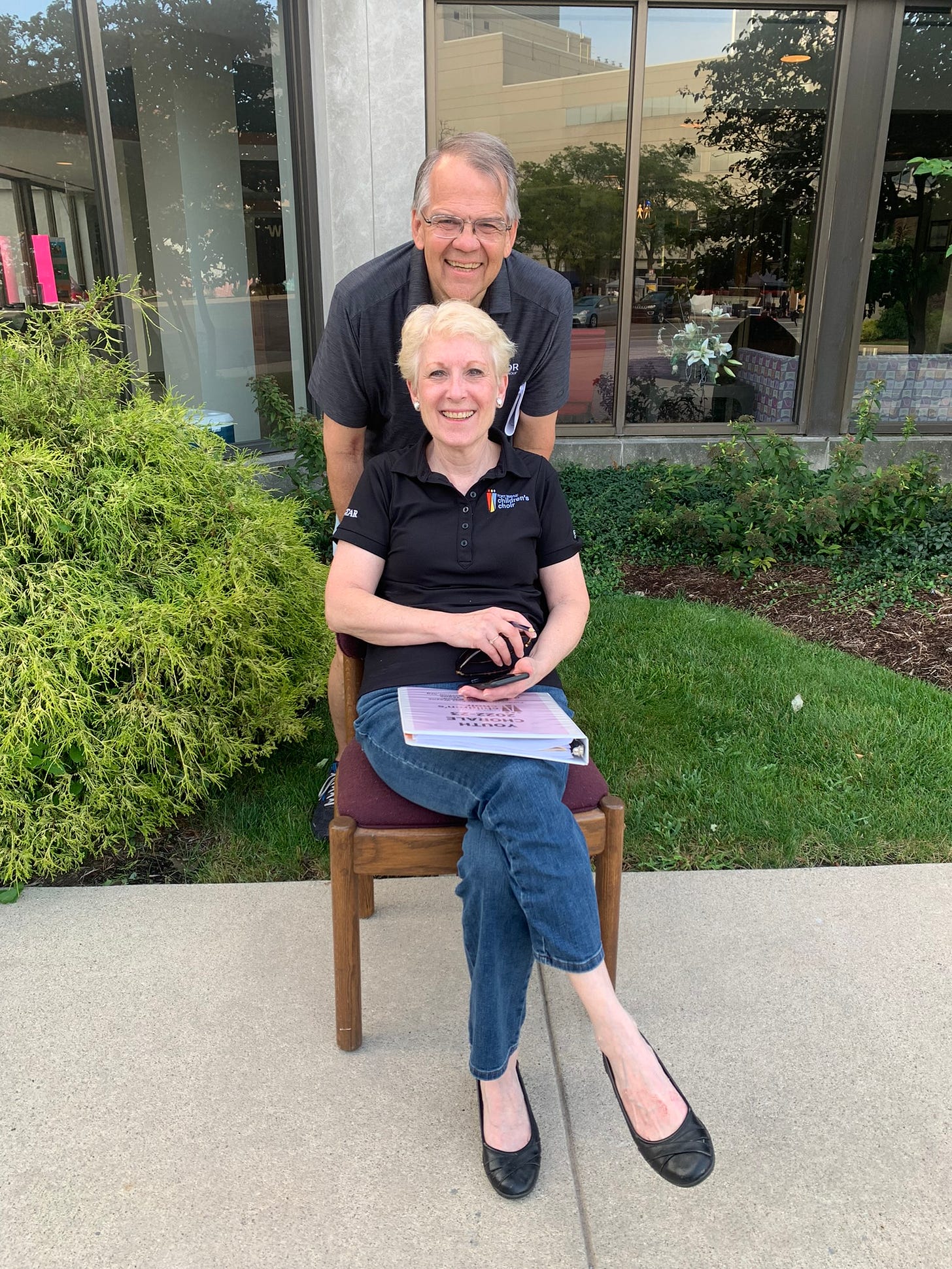Welcome back! (Or welcome!)
I’m reading about dignity therapy these days. It’s a therapeutic tool where a person, usually in hospice, spends time with a therapist who asks them a particular set of questions about their life. These conversations are recorded and transcribed and lightly edited. Eventually, they are read out loud to the person, for one last approval. After their death, the document is given to whomever they’ve designated.
The idea was to help a dying person have dignity, to have a voice and meaningful activity as their life is ending.
Questions include: “Tell me a little about your life history, particularly the parts that you either remember most, or think are the most important. When did you feel most alive?” and “Are there words or perhaps even instructions you would like to offer your family to help prepare them for the future?”
These are not best-selling memoirs. These are letters to the ones you care about.
(You can read more about dignity therapy here. Or listen to an NPR story from 2011. And if you are a research person, here’s the most recent article.)
As I’m talking about this, you may be thinking about the Book of Me, which is an autobiographical journal. Or the Storyworth projects where people are emailed questions about their lives and the answers are put into a book.
When my dad was turning 65, he wrote a book for us that told his story up to that point. He lived another 16 years, but a couple years after his book, he retired and had a couple strokes which would have made the writing process more difficult for him.
Nancy often talks about things she wishes she would have asked her parents before they died. Family stories, dates, places.
Recently, we attended a funeral where the guy who died had asked for four particular songs from his past to be played. They told his story in music, or better, revealed his heart and his loneliness and his effort to make sense.
Storytelling is an important way to shape the lives we lived, and the ways other people will remember.
Tonight on the church calendar is Maundy Thursday. It’s the night that Jesus ate dinner with his disciples one last time. The notes from this one evening take up four chapters in John’s account of Jesus’ life.
In that last lecture, Jesus
created and commissioned a ritual which is still celebrated.
summarized his teaching in a simple phrase. If you love me, keep my commands. Here is my command. Love one another. The application of it is debated, but the phrases are remembered.
listened to Peter’s bravado, told Peter how he would falter, and then told him that he wouldn’t be kicked out.
talked about the Holy Spirit.
prayed for them in a way that prepared them for challenges.
prayed for those who would come after them.
Around that table, and on the walk that followed, Jesus gave them a thorough summary of what they would need after he died. And rose. And disappeared.
It is a remarkable example of what we can do for those we love and care about. It’s a remarkable summary statement of “here’s what I came for.”
And it’s an example of the way that all these collections of stories in dignity therapy and in the other writing prompts grow out of love. In the writing process we can say, “I love you enough to explain what I was doing. And how you can take care of each other.”
+++
What you can do:
If you already own This is Hard: What I Say When Loved Ones Die, there are journal pages in the last half of the book. Or if you walked through the Advent book, Giving the Year Meaning: A Healing Journal for Advent, you have several helpful questions.
If you don’t want to buy a journal or a subscription to emails, here are some questions to ask or answer:
What teacher actually made a difference in your life? How did they help you?
What should we expect of life when we are your age?
What are the things that make you laugh?
If you could have another hour with someone, who would it be and what would you say or do?
What do you want to say to the people you care about so that they don’t think, “If only I had one more hour?”
When Guy Raz interviews people about their lives, they often talk about some obstacle or crisis. He always asks, “So, what did you do?” Ask that more.
What’s a response that you made once that you’d like to change?
Was that moment (or season) as hard as I think it must have been?
What do you know about what’s going to happen next that it would help us to know?
What project have you worked on that we don’t have to worry about anymore?
+++
See you next week. Have some helpful conversations this weekend.
Jon



